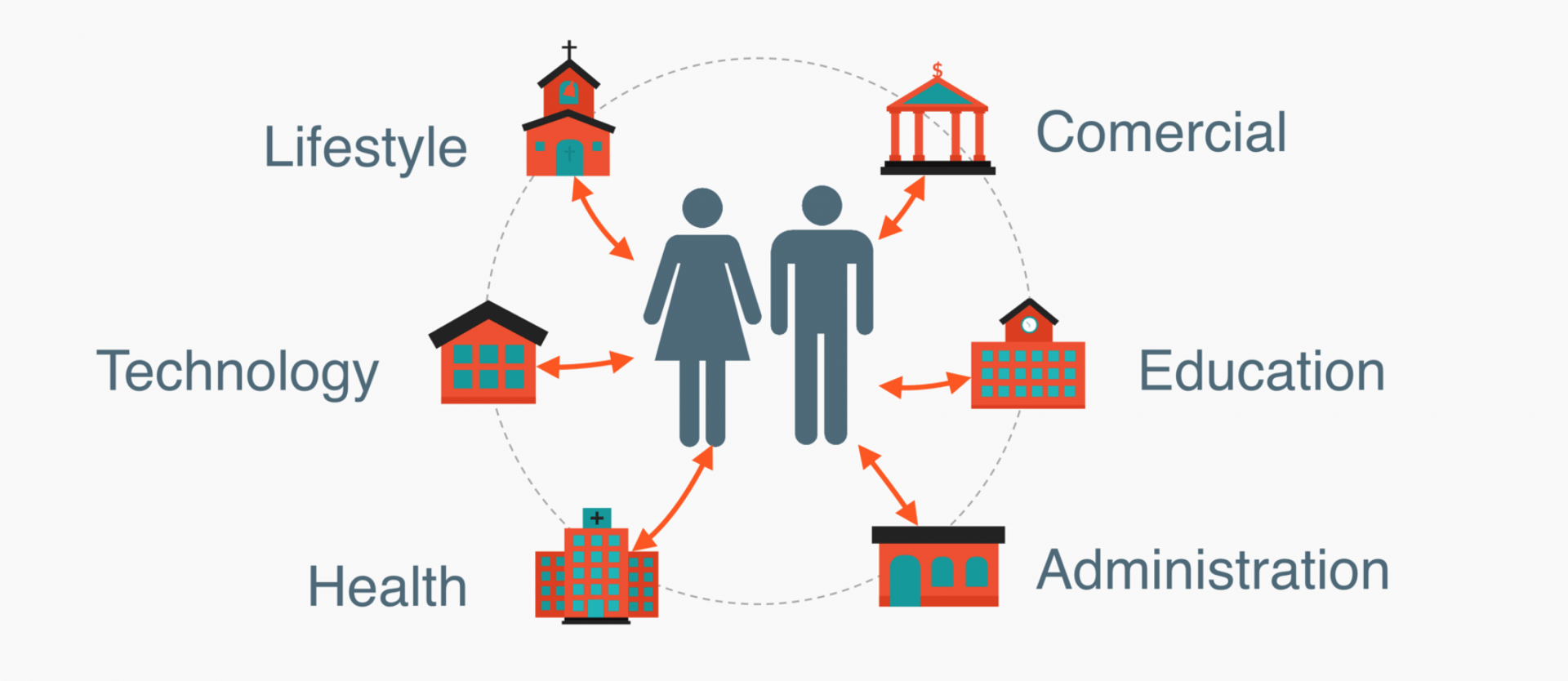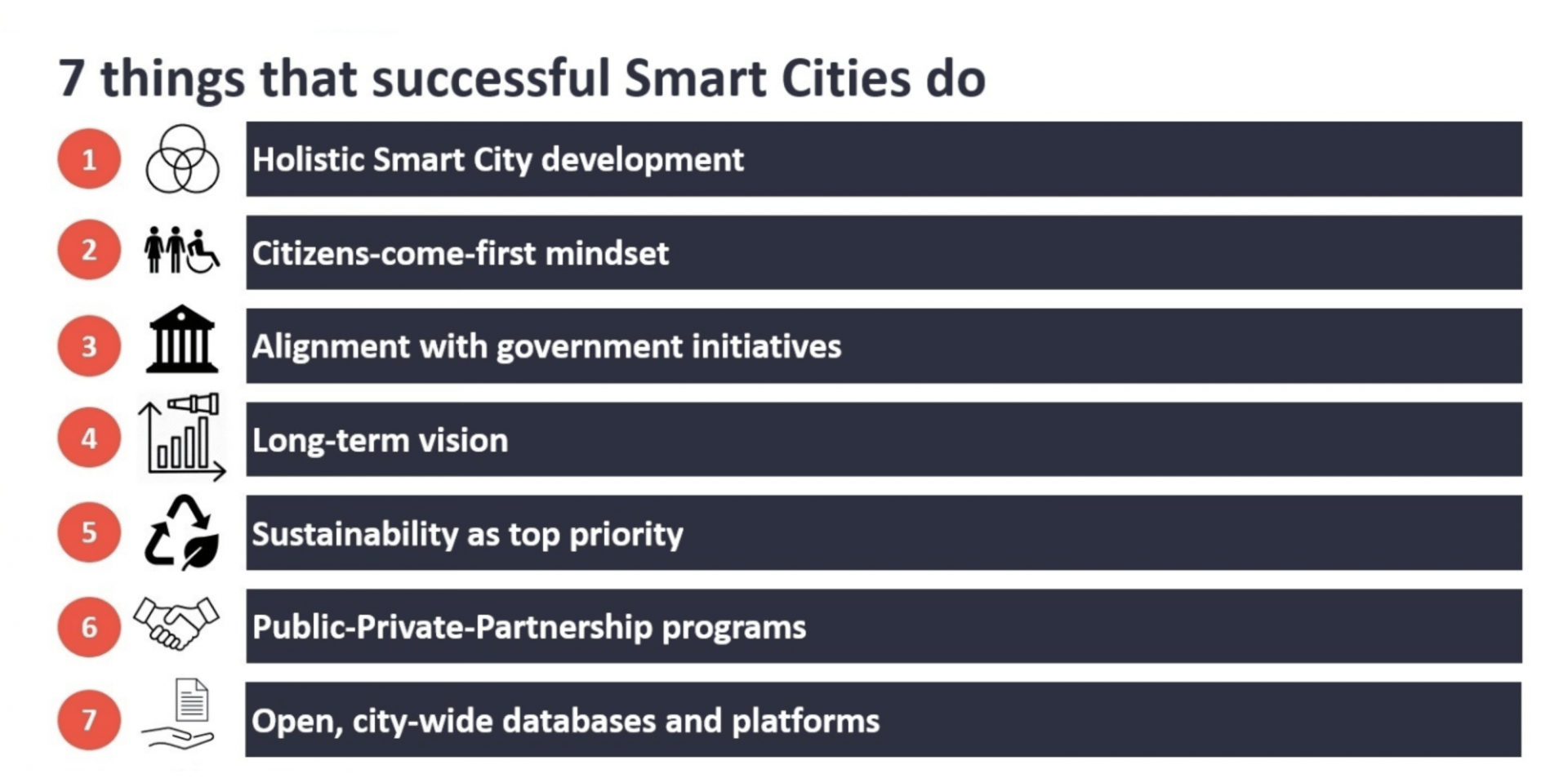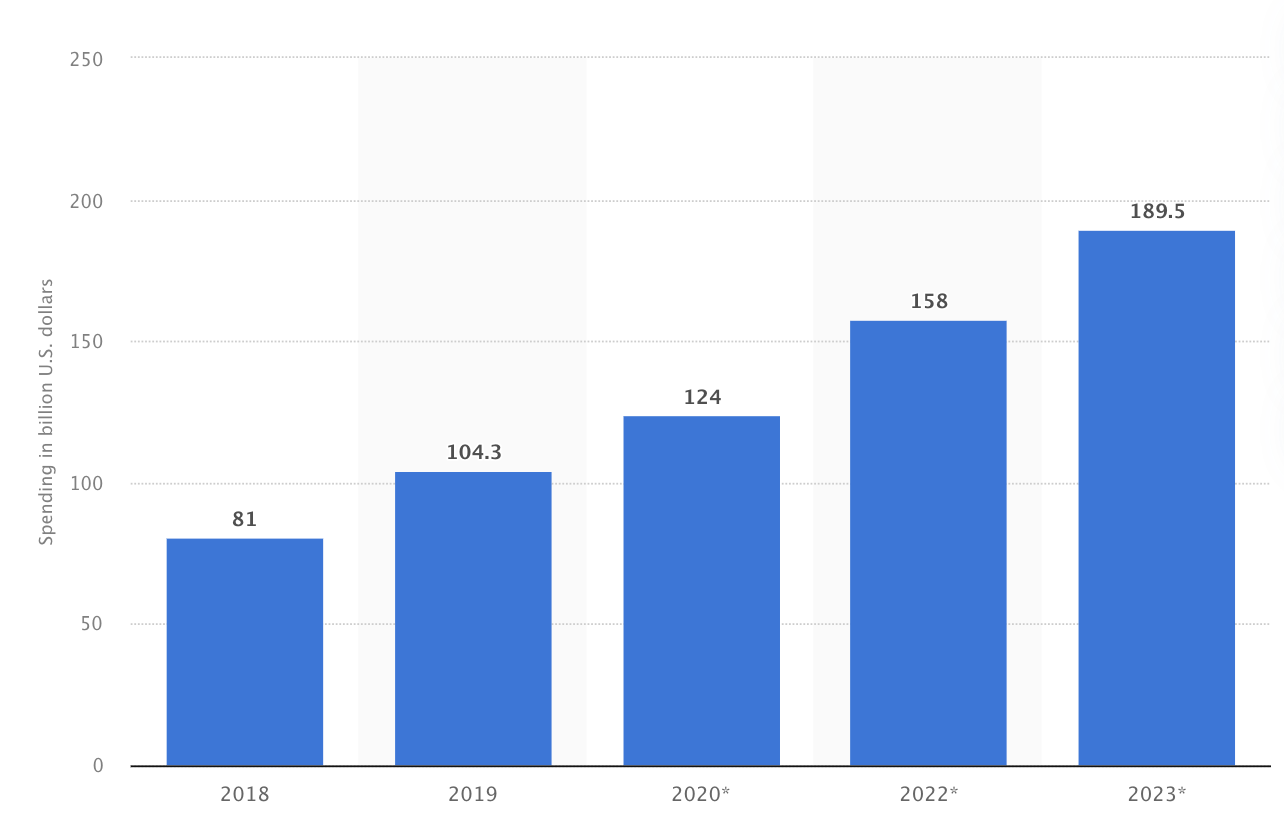
3 Things the Government Can Do To Make Smart Cities Sustainable
Making a smart city sustainable requires building a holistic city that has robust digitization, good governance, intelligent infrastructure, and a decent quality of life for citizens.
UK Cities that have implemented smart city projects include Belfast, Birmingham, Bristol, Hull, Manchester, Milton Keynes, London and Peterborough.
As urban centres are a hub for technological development and revenue growth, more and more people are migrating every year from rural regions to seek better education, job opportunities, health facilities, and an advanced lifestyle. Hence, to adequately fit the growing population into cities, along with providing a fulfilling lifestyle, the government wishes to make cities ‘smarter’ with the help of technology. However, making cities smarter is not the best way out for providing citizens with a quality life. The government should aim at making smart cities sustainable, which means cities that can readily accept any socio-economic changes.
A Guide For Making Smart Cities Sustainable
Smart waste management, green environment, good governance, enhanced security, and better healthcare are few glimpses of a sustainable smart city. However, making cities sustainable is not easy as each city is different and requires a unique approach to become innovative. Hence, shared below are few measures that the government can take to make cities both smart and sustainable.
1. Encourage Citizens For Active Participation

The first step towards making cities sustainable is to encourage citizens for active participation. As citizens are deemed to be the nation's strength, the government must know citizens' opinions and demands. With the rise of smartphones and various other digital media platforms, people can raise their voice, stating their needs and views to make their city better, all by themselves. The government should set strict laws around crime ratio, waste management, green environment, and so on and so forth, making sure they are followed religiously.
2. Expand IT Expertise

With sensors embedded in almost every device, product, and ‘thing’ around us, analysts and IT professionals collect real-time troves of data. But, data that gets collected needs the assistance of IT experts who can draw informative, productive, and actionable insights by leveraging data analytics, AI, and ML technologies. With the help of a team of experts, the government can identify the appropriate use of sensors for products and devices that can participate in the betterment of cities.
3. Arrange For Enough Funds

Projected Smart City Speding Worldwide from 2018 to 2023 | Source: Statista
The global spending on smart city projects worldwide is forecast to more than double between 2018 and 2023, increasing from 81 billion U.S. dollars in 2018 to 189.5 billion in 2023. The government has to make huge investments in smart, sustainable cities. By encouraging citizens who have the potential to invest in ‘smart’ city projects, the government can gather handsome funds. Another way to arrange for funds is via ‘crowdsourcing.’ By using social media platforms, the government can attract people to invest in projects that make their city smart and sustainable. Along with the list mentioned above, smart surveillance that involves advanced technologies like ‘cryptography’ should also be leveraged to safeguard data that is gathered from sensors, actuators, and cameras. In a nutshell, the key to making smart cities sustainable lies in making the cities self-sufficient to provide a growing population with the best of amenities and services.
Trending
-
1 How IoT is Revolutionizing Sustainability: A Brighter Future Beckons
Susanna Koelblin -
2 How The Water Treatment And Desalination Will Change The Environment For The Better
Daniel Hall -
3 How Intermediate Bulk Containers Enhance Environmental Sustainability
Daniel Hall -
4 Hybrid Cars and Their Key Benefits
Susanna Koelblin -
5 UK Faces Wettest July in Recent Memory
Daniel Hall






Comments